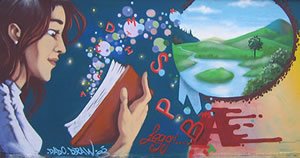
There is a category of writers in Italy classified as "Untouchables". Their works are sacred, above negative criticism, especially by literary critics. Not only is negative criticism of their global work forbidden, but also each individual product they pen enjoys near total immunity. At the top of the Untouchables list was doubtless Alberto Moravia, who could boast of nearly universal positive critique: as one critical critic wrote, 99.0% for, 0.01% against. Other Untouchables have been Leonardo Sciascia, Nobel poet Eugenio Montale, and Italo Calvino. Now deceased, these Untouchables have largely retained their immunity until today.
Literary historians complain that they can find no negative opinions of the Untouchables. No faults. No bad books. No debate about them. Montale was universally recognized as a great poet, but, one wonders, is it possible that he never wrote a bad poem? Or Moravia, or Sciascia, a bad book? Strangely, critics have overlooked what legions of Italian readers still say about Moravia: "I liked his Racconti Romani–the 61 stories published in one volume in 1954–but he didn’t write a good book in the last 30 years of his life."
Literary historian, Guido Almansi, puts Natalia Ginzburg–pronounced Natalía–in this small group and wonders why critics never questioned her inclusion in the prestigious Meridiano Collection of Mondadori Editore beside Thomas Mann, Kafka, Joyce, Ezra Pound and Proust. His conclusion is that she is an Untouchable. "I read that article and it irritated me," Mrs. Ginzburg told me in an interview not long before her death in Rome in 1991. "I don’t know what the term ‘Untouchables’ means. It sounds like a journalistic invention. Critics have certainly canned some of my works and, on the other hand, I myself have written articles about a lack of serious literary criticism in Italy.
In an essay of 1970 included in her collection, Mai Devi Domandarmi, [published in English under the title of Never Must You Ask Me, Michael Joseph, London, 1973] she compared the role of the real critic–"of clear, steady, inexorable and pure judgment"–with the role of a father like that heroic, powerful, domineering figure described in her autobiographical Lessico Famigliare [Family Sayings]. "We need a critic who knows us [me] and is implacable in pointing out our [my] mistakes and who reveals what we are [I am]." But at the time I interviewed her she no longer cared what critics said about her works, claiming she anyway wrote for only three or four people.
The father image remained a dominant factor in Ginzburg’s life as a person and a writer. In Lessico Famigliare, she describes how her father, Giuseppe Levi, physician, scientist, professor and author of scientific works, conditioned the life of the family and their friends. His angry and bellowing figure is always before her. "He thundered against my indolence. I felt a holy terror of him: his frowning brow, lined cheeks, curly eyebrows and grim red hair." The young girl, wife and widow of two husbands, and writer, felt terror of him. And guilt. She felt guilty for everything she did or did not do that caused him displeasure. "In my childhood I knew no sadness," she once wrote, "only fear."




1 Comments:
Moravia was relentlessly criticized throughout a long publishing career and Sciascia was criticized a lot (rightly IMHO) for his Moro Affair and criticism of anti-Mafia magistrates. That either was "untouchable" is utter nonsense!
Post a Comment
<< Home